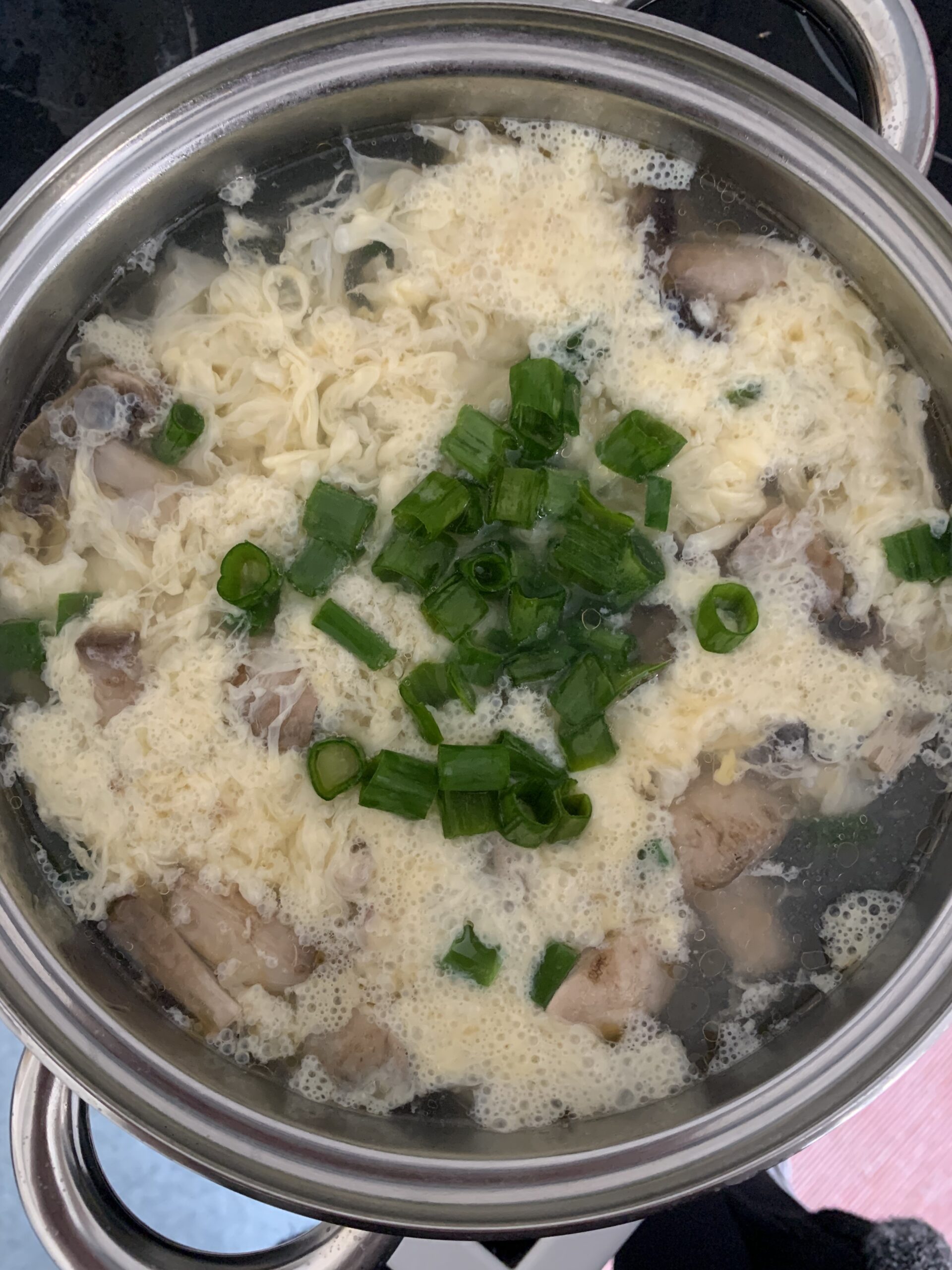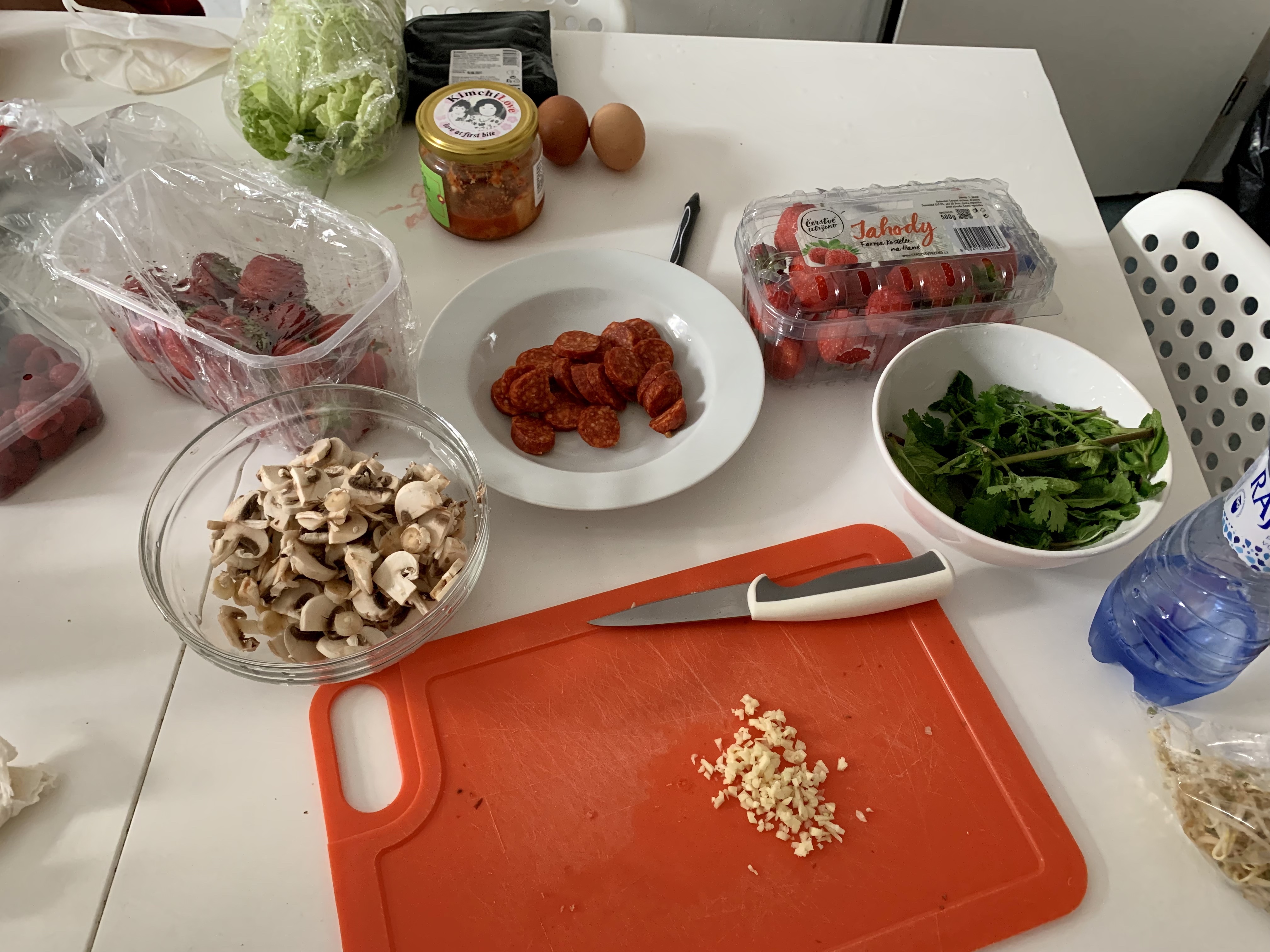
Food on a Budget
Growing up with a low-income background, I had always been acutely aware of the cost of food. Although I enjoy eating out with friends and experiencing new cuisine, I also understand how important it is to set limits for myself in order to create a budget that fits my finances. Coming to Prague, I was excited to taste what the city could offer me, and like many other students, I was excited to dive into all of the amazing restaurants I walked past. However, I kept in mind that food is merely one factor of the city; I had so much more to discover and experience! That being said, my food journey has enhanced my time in Prague in more ways than one.
In my first week in Prague, I allowed myself to eat out and try out Czech cuisine for the first time. In addition to their beer culture, Czechs are also known for their savory and filling meals, with much of their traditional foods consisting of meat, heavy sauces and soup, and bread. It was an interesting experience to try food that was much different from what I was used to eating. Surprisingly, my meal totaled 290 crowns; with tip, my meal was $14! Comparably, if I ate at a restaurant in Philadelphia’s Center City, I would have to pay up to $25. Some time later, I also tried a traditional Czech cabbage soup in a bread bowl and a Trdelník, though the latter seems like a tourist-centric delicacy. By restricting the amount of times I ate out, I used around $55 during my first two weeks in Prague for meals out.
Of course, budgeting does not mean constantly restricting ourselves. For instance, during one of our flatmate’s birthdays, we decided to eat out at a neat cafe, where we all had waffles and other brunch menus. That same day, we also proposed a flat-dinner, where we would all chip in and contribute to make dinner. Not only did this save us money, it was a great opportunity for us to get to know each other better. We made a large helping of rice, curry, and kimchi salad; we even baked a cake! By finding a balance between eating out and eating in, I learned how to enjoy the cuisine around me while lessening the impact of studying abroad on my wallet.
In addition to developing a food budget, I also took advantage of the resources available to me. For example, when the class planned an excursion where food would be available, I would pack my leftovers to snack on whenever I felt hungry. This way, I can save money on food and wouldn’t feel compelled to finish my food all in one sitting.
During the days I don’t eat out, I shop for groceries, which often consists of fresh vegetables, fruits, and meats. Rather than buying snacks or processed foods, I stick with items that I can create meals out of. This way, I can cook the same item two nights in a row (this is especially helpful whenever I miss my family’s cooking and need a sense of familiarity).
For many FGLI students studying abroad, the cost of personal expenses may be shocking when they first arrive. Like them, I understand how the fear of spending money can impede the study abroad experience. For students who grew up with food insecurity or grew up in an environment where eating out was a luxury, the thought of spending money outside of their studies may invoke a sense of uneasiness. If I could give one piece of advice to students, it would be that although indulgence may seem like an entrancing evil, by building a budget for day-to-day expenses and finding a balance between eating out and making their own meals, students can define their experience under their own terms.

